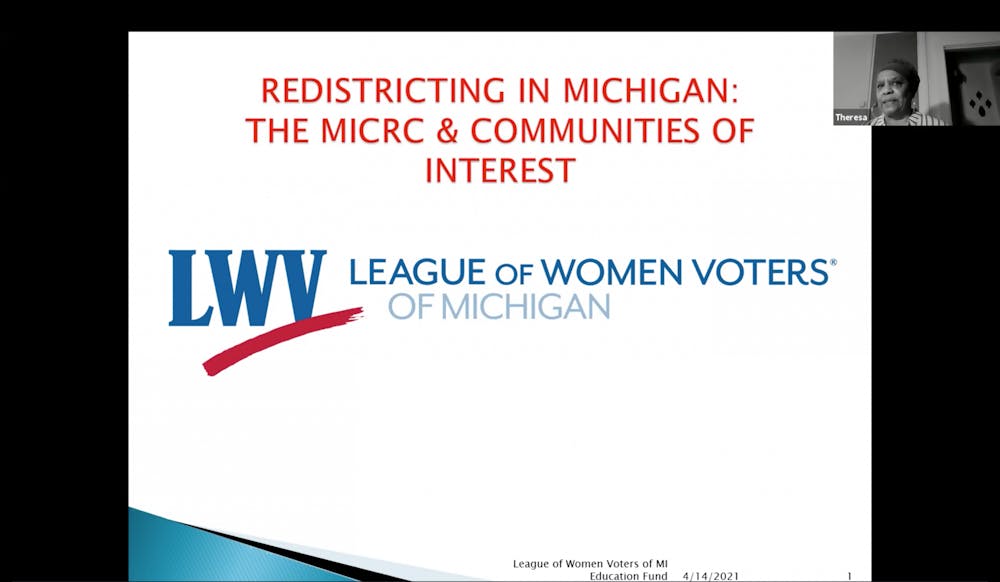League of Women Voters talk citizen representation, redistricting at virtual town hall
On April 14, the League of Women Voters of Mount Pleasant Area (LWVMP) hosted a virtual town hall discussing redistricting and gerrymandering in Michigan, focusing on communities of interest.
The event was represented by LWVMP members Theresa Williams, Kathy Ling, Frances Lichtman, and Gail Mitchell.
President Theresa Williams opened by introducing the LWVMP, a nonprofit political organization that “encourages the active participation of citizens in government.” The League also works to increase understanding of major public policy decisions through education, Williams said.
The town hall officially began with an overview of redistricting and gerrymandering in Michigan. Ling focused on the harmful impacts of gerrymandering in Michigan, noting politicians that would manipulate elections in drawing district lines to keep their party in power. “Cracking” and “packing” were the most common tactics used in Michigan, Ling said.
As a result, Michigan voters decided to end gerrymandering and approve Proposal 18-2 in November 2018. This proposal created a citizen commission to determine district lines, Lichtman said, transferring power from the Michigan legislature to the voters. This commission is required to hold 15 public hearings before a map is approved, creating an opportunity for public participation.
The conversation shifted to discuss communities of interest, which Mitchell explained as populations that share cultural characteristics, historical characteristics, or economic interests. Michigan’s unique citizen commission allows for an opportunity to protect these communities.
“They matter,” Mitchell said, “because under Michigan’s constitution, they are meant to be the building blocks for legislative districts.”
Mitchell suggested two key ways to get involved and protect communities of interest: attend public hearings in your area and contact your local league for educational tools and more information to get involved. County redistricting is open to the public. Meetings and other information is available through the Clerk’s Office, Mitchell said.
“That’s the beauty of it,” Rothhorn said. “It’s a citizen-led initiative. We’re trying to understand how we can be more inclusive to communities of interest by creating a definition to further define them.”








